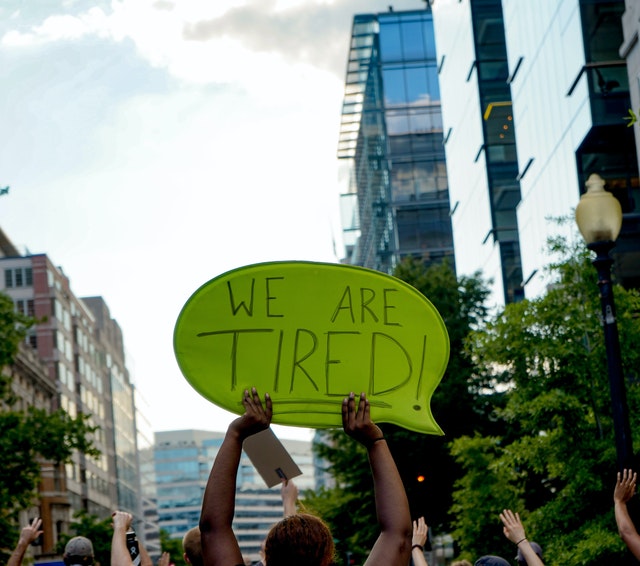Virtual communities are destigmatizing living with STIs & sex educators are still working hard to inform and enlighten our sex positive next generations.

December 12, 2018, I received my diagnosis: I was HSV-2 positive. Commonly known as “genital herpes” (genital being a misnomer, it can be found on the face), HSV is a chronic and lifelong viral infection. The journey to my diagnosis was the most traumatic experience. The doctor had to take a swab and dig into a physical wound, only to rip open the mental one—shame. More harmful than the diagnosis could ever be, I thought I was damaged goods until someone accepted me, “bum bump” and all.
Let me back up a bit because my testimony isn’t the reason for this article. It’s an examination of the way I am grateful to be living amongst those living with HIV and STIs that are saying, “No more shame.” Almost every three months, we have folks coming out to say that they have a positive HIV or STI status and they are thriving. I mean, most of us are, besides the shame of the viral infections. Statistics show that 50% of Americans have oral herpes (HSV-1/cold sores—yes, that’s herpes) and 1:6 have genital herpes (HSV-2). So, if half of us have it then…nope, stigma is still a thing.

So how do we slay this dragon called “stigma”? Invisible to the eye but incredibly petrifying. There’s this idea in the U.S. (and perhaps the world) that you must be as chaste as possible yet also a sexual god/dess behind closed doors. What of that, though, when you can get diagnosed with your first partner? Don’t get me started on what constitutes sex—penetrative, vaginal, or otherwise. You can find yourself with a positive diagnosis for most STIs through oral sex, anal sex, and (mainly HSV) kissing. Rising from this spiral of “it’s not if you get it but when,” the stigma is there at every level and it won’t stop if we just abstain from sex. The best way that I’ve found, is speaking your truth.
This article was inspired by Herpes Could Never, a Black women-led community of “cousins” living with herpes. Shana Singleton (The Herpes Goddess) and Amber Spratt Jones (WatchAmber) have created a beautiful space built to inform the masses that we can beat the stigma—but it’s got to start with us. They even hold retreats! I was blessed to join several other womxn living with herpes and hear diet and remedy tips, how to “ho” with herpes, building confidence, and more. Some were fearful to share their stories, but everyone that showed up knew one thing: life goes on. I encourage everyone living with herpes to follow them and use their resources to continue to build community.
So you’ve spoken your truth, but people around you still use “clean/dirty” rhetoric, assume asymptomatic means negative, and give you pity about your condition. Beating the internal stigma is one thing, but our world will continue to fear what it doesn’t understand. As long as we’re living in a world that puts the financial burden on the patient for simply seeking to learn their status, the stigma will always exist systemically. The only way to know if you have most STIs is through a full panel blood test. You can find a health center to do this, but can you afford it? Affordability: financial, time, travel, etc. Why are there so many barriers to getting tested? I have insurance through my job with no premium and currently fighting them to get my annual testing covered. We shouldn’t have to battle to be knowledgeable of what goes on in our bodies, especially to stop the spread.

Stepping off my soapbox, stigma is ingrained in our white supremacist, patriarchal, capitalist society, but there are plenty of folks fighting the good fight. There are the big ones that fight nationwide like Planned Parenthood and provide materials to help you advocate in your community because it’s not just about knowing your status but access to healthcare in general. Many local organizations in Atlanta rely on government funds (that are few and far between) to provide healthcare for many people that would otherwise not prioritize having a medical provider. So why don’t they prioritize healthcare? Increased well-being for everyone starts with shelter and food—what would a medical regimen mean if I don’t have a bed to live in at night?
Ok, now I’ll step off my soapbox. It turns out stigma is more like a dragon, with a sniper rifle, and nuclear codes; not much we can do to completely dismantle the system in place. What we can do with our communities is provide a space for our loved ones to be comfortable with their status. Quarterly friendly reminders (whether your people are in monogamous relationships or not) to go get tested, or go on testing dates with your partners. I have hope for this Age of Aquarius, we could all benefit from shifting our perspective. From a capitalist standpoint, entertainers like Megan Thee Stallion and Lil Nas X are talking about sex in a way to destigmatize pleasure for women and same-gender loving men, respectfully. Lil Nas X recently worked with Southern organizations to bring awareness to People Living with HIV in the South. More money going to pharmaceutical companies means more for research to one day end the syndemic of HIV and STI cases. If only this macro-awareness could puncture the cloud of stigma in our small circles.

I don’t want to end this on a pie in the sky wish and I won’t. It’s time to stop calling people with HIV and STIs dirty. It’s time to stop assuming you’re negative by avoiding the doctor, and if there isn’t testing available in your area, advocate for more access to healthcare for your community. As my Herpes Could Never queens would say, it’s time for our cousins to love themselves more. I love myself. I am loved. I am a Black woman with herpes and I am ecstatic for more people to inform others on sexual health and live in their truth, no matter what their status is—just make sure you know it.